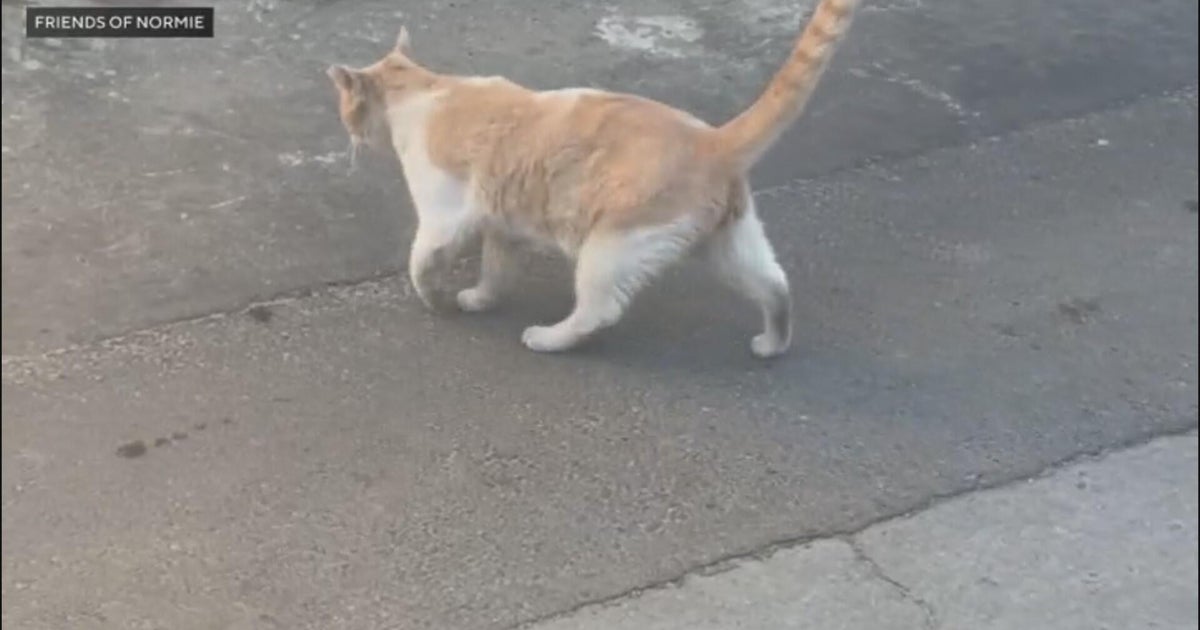House passes bill featured in "Tiger King" that would ban most big cat ownership
The Netflix series "Tiger King" left a mark on 2020 — and now, it may contribute to a more lasting legacy. On Thursday, the House of Representatives passed the Big Cat Public Safety Act, a bill featured in the show that would ban most big cat ownership.
The bill, which passed 272-114, is an expansion of the Lacey Act Amendments of 1981 to "further the conservation of certain wildlife species." Specifically, the bill limits who is able to transport, sell, buy, breed or possess big cats, including lions, tigers, leopards, cheetahs, jaguars, cougars or hybrids of those animals.
If the bill passes, most individuals will not be allowed to privately own big cats, and all direct public contact with the animals, including cub petting, will be forbidden. Wildlife sanctuaries, colleges and universities, state-licensed veterinarians, facilities with a specific license from the Department of Agriculture and a select few others will still be permitted to have big cats.
Those who own big cats that were born before the act was enacted will be permitted to keep their animals, so long as they register the animal and do not breed it or allow it near the public.
If passed, those in violation of the law could be fined a maximum of 20,000, and could also be imprisoned for a maximum of five years.
There are roughly 10,000 big cats in the U.S., and more tigers in captivity than there are in the wild, according to the International Fund for Animal Welfare.
The organization says that big cats kept in captivity are often "at risk for abuse," and live in poor conditions, including roadside zoos that are not being overseen or held accountable. Just weeks ago, the Department of Justice alleged that Jeff and Lauren Lowe, a couple also featured in the "Tiger King" series, opened an unlicensed big cat park after Jeff lost his USDA license for alleged "improper" and "inadequate" animal care.
According to the Humane Society of the United States, the Lowes' alleged treatment of the animals is not unusual.
"There are many more exhibitors around the country, including some we have investigated, who recklessly breed these animals and/or use baby tigers and lions for the public to feed, pet, play with, and take photos with," Kitty Block, president and CEO of the Humane Society of the United States and Sara Amundson, president of the Humane Society Legislative Fund, said in a joint statement. "The animals' own essential needs and wellbeing are typically ignored and they are physically abused when they resist being handled endlessly."
Block and Amundson said by the time big cat cubs are three to four months old, they are usually put in roadside zoos, "pseudo sanctuaries," or sold as pets. They pointed to a 2011 incident in Zanesville, Ohio, when a man released 50 wild animals, including dozens of big cats, that authorities were "forced" to shoot and kill.
"Since 1990, more than 400 dangerous incidents involving captive big cats have occurred in 46 states and the District of Columbia," they said. "Twenty-four people have been killed, including five children, and hundreds have been injured, with some even losing limbs or suffering other often-traumatic injuries. In many cases, as in Zanesville, the animals are shot and killed, often by first responders not trained to deal with such situations."
Thirty-five states prohibit people from keeping big cats as pets, but according to Block and Amundson, the problem will continue to persist until "strong federal" laws are in place.
Representative Mike Quigley, who sponsored the bill, said on the House floor that "500-pound carnivores pose a very real threat."
"Lions and tigers do not belong in urban apartments or in cages in suburban backyards," Quigley said. "Private citizens simply do not have the resources to care for dangerous animals that are meant to roam over hundreds of square miles."
Carole Baskin, the owner of Big Cat Rescue in Tampa, Florida, has spent years pushing Congress to pass the bill, and some of her activism was featured in "Tiger King."
"We are thrilled that the Big Cat Public Safety Act passed the House with bipartisan support to protect the big cats from abuse, the public and first responders from injuries and death, and the tiger in the wild from extinction," she wrote on Facebook. "None of these important goals are partisan in any way and we hope the Senate will follow suit quickly to make it into law."
The bill was passed on the same day that a tiger at Big Cat Rescue "nearly tore" the arm off of a volunteer, the rescue said.
Candy Couser, 69, was getting ready to feed 3-year-old tiger Kimba when she realized he was locked away from the area he was usually fed, the nonprofit said.
"She opened a guillotine tunnel door at one end of the tunnel, and when she went to raise the second door she saw it was clipped shut. This is our universal signal NOT to open a gate without the coordinator coming to assist, but Candy said she just wasn't thinking when she reached in to un clip it," Big Cat Rescue said in a statement. "It is against our protocols for anyone to stick any part of their body into a cage with a cat in it. Kimba grabbed her arm and nearly tore it off at the shoulder."
Couser, according to Big Cat Rescue, has insisted that the tiger does not "come to any harm for this mistake." Kimba will be placed under a 30-day quarantine as a precaution, but the rescue said the incident was him "just acting normal due to the presence of food and the opportunity."
"This happened on the day our federal bill to ban cub handling and private possession comes to the House floor for a vote," the rescue said. "The fact that, despite our intense safety protocols and excellent record of safety, an injury like this can occur just confirms the inherent danger in dealing with these animals and why we need the Big Cat Public Safety Act to eliminate having them untracked in backyards around the country and ending up in sanctuaries where wonderful people like Candy Couser have committed themselves to providing care for those discarded by the pay to play industry."



